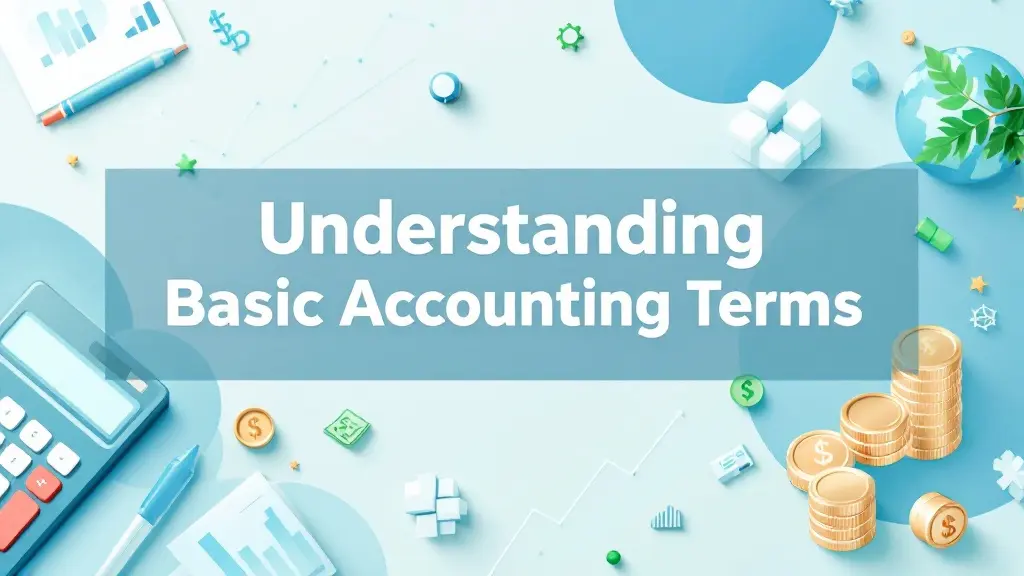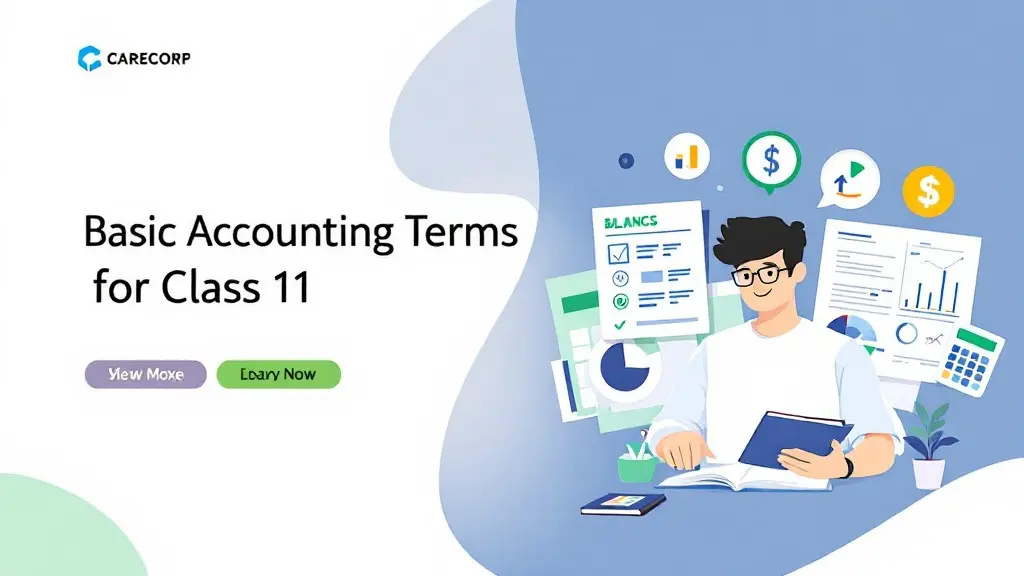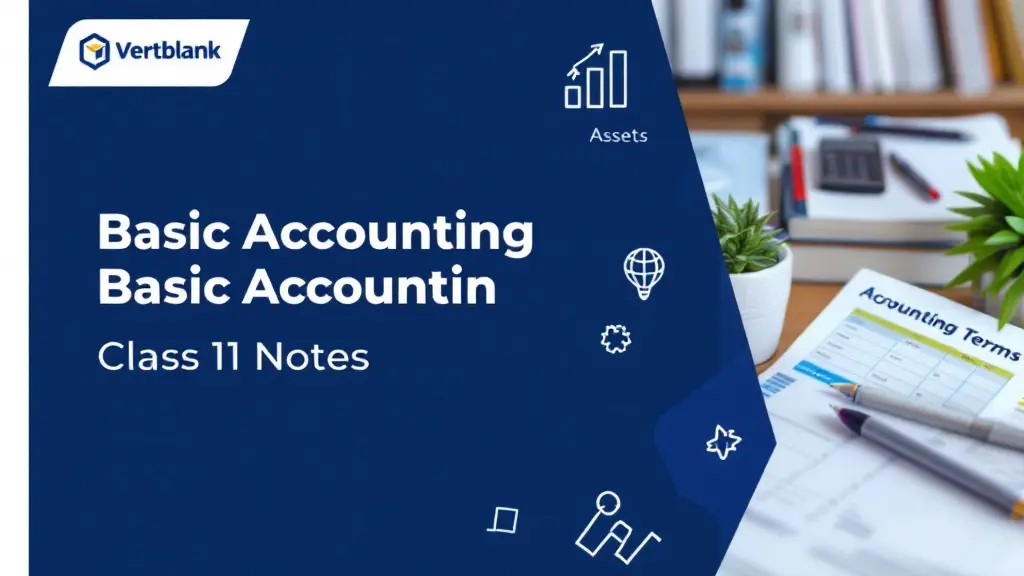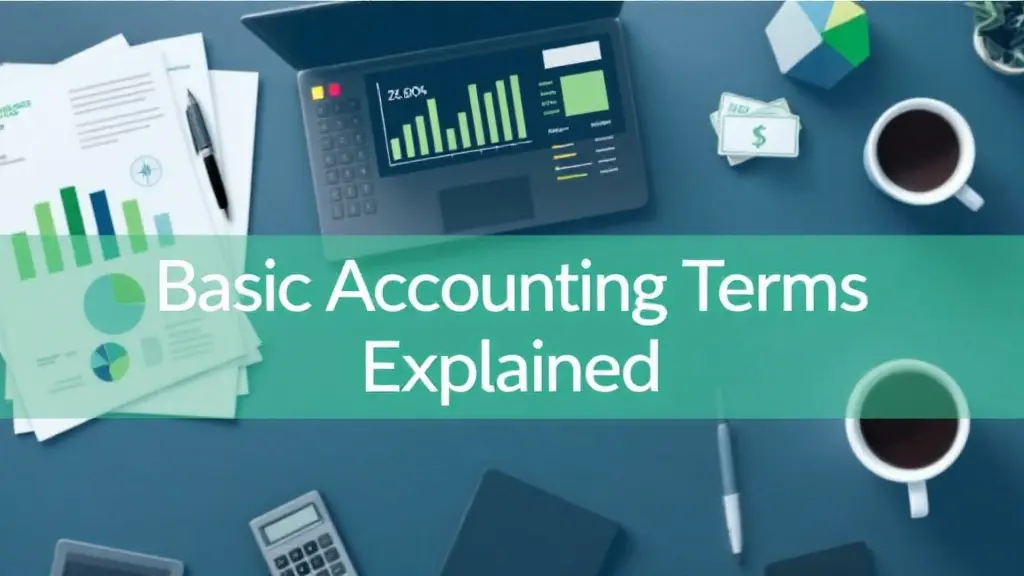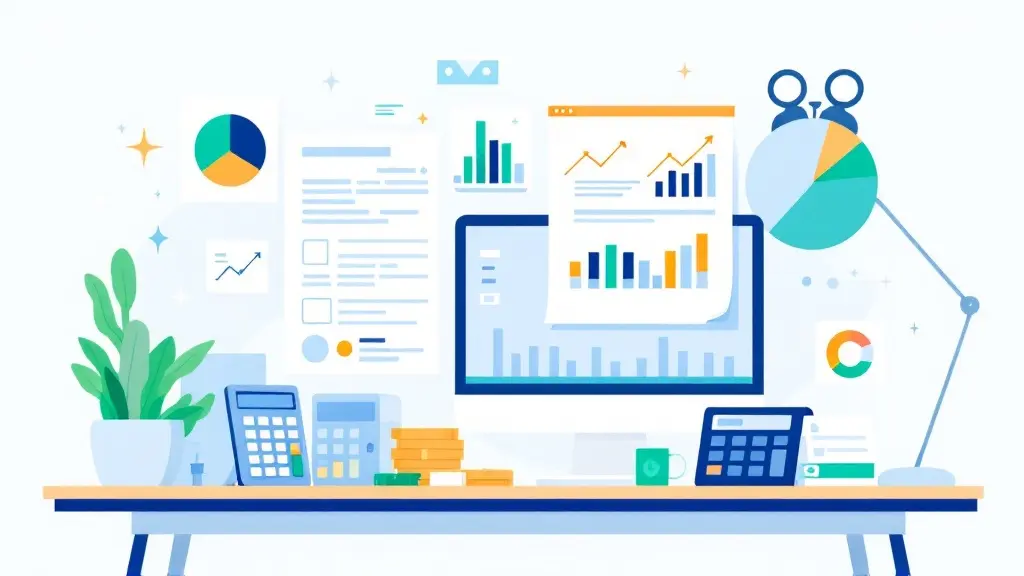Basic Knowledge of Accountant: A Complete Beginner’s Guide
Table of Contents
Most Read
[fusion_dropcap class="fusion-content-tb-dropcap"]I[/fusion_dropcap]n today’s fast-paced business world, understanding the basics of accounting is more important than ever — whether you’re a small business owner, a student, or someone considering a career in finance. Accounting is often called the “language of business” because it communicates the financial health of an organization.
In this blog post, we’ll break down basic knowledge of accountant responsibilities, important concepts, and key skills you should know — all in a simple and engaging way. Let’s get started!
What is Accounting?
At its core, accounting is the process of recording, summarizing, analyzing, and reporting financial transactions of a business. It provides critical information that helps stakeholders like owners, investors, and regulators make informed decisions.
Without proper accounting, it would be nearly impossible to track how much money a business is making or spending.
Who is an Accountant?
An accountant is a professional responsible for maintaining financial records, preparing reports, ensuring compliance with tax laws, and helping businesses make sound financial decisions.
They are like financial doctors — diagnosing problems, recommending solutions, and ensuring the company’s financial well-being.
Why Basic Accounting Knowledge is Important
You don’t have to be a professional accountant to benefit from basic accounting knowledge. Here’s why it’s crucial:
- Better Financial Management: Understand your income, expenses, assets, and liabilities.
- Informed Decision-Making: Analyze financial statements to make smarter business or personal finance decisions.
- Tax Compliance: Stay organized and compliant with government regulations.
- Business Growth: Identify opportunities for saving money and increasing profits.
Key Accounting Concepts You Should Know
Understanding these fundamental concepts will give you a strong foundation in accounting:
1. Assets, Liabilities, and Equity
- Assets: What a company owns (e.g., cash, inventory, equipment).
- Liabilities: What a company owes (e.g., loans, accounts payable).
- Equity: The owner’s interest in the business after liabilities are deducted from assets.
The basic accounting equation:
Assets = Liabilities + Equity
This formula must always stay balanced!
2. Revenue and Expenses
- Revenue is the money earned from selling products or services.
- Expenses are the costs incurred to earn that revenue (like rent, salaries, and utilities).
The goal? Make sure revenues exceed expenses to earn a profit!
3. Debits and Credits
Every financial transaction affects at least two accounts in the accounting system. These are recorded as:
- Debits (Dr): Entries on the left side of an account.
- Credits (Cr): Entries on the right side.
Understanding how debits and credits work is essential for maintaining accurate books.
4. Financial Statements
An accountant prepares several key reports:
- Balance Sheet: Shows a company’s financial position at a specific point in time.
- Income Statement (Profit and Loss Statement): Summarizes revenues and expenses over a period.
- Cash Flow Statement: Tracks cash inflow and outflow.
These reports help tell the financial story of a business.
Common Tasks an Accountant Handles
A beginner accountant or someone with basic accounting knowledge should be familiar with these daily tasks:
- Recording transactions (sales, purchases, payments, receipts)
- Preparing invoices and receipts
- Managing accounts payable and accounts receivable
- Reconciling bank statements
- Assisting with payroll processing
- Preparing simple financial reports
- Filing taxes and ensuring compliance
Essential Skills Every Aspiring Accountant Should Have
Whether you’re managing your own business finances or pursuing a career in accounting, developing these skills will set you up for success:
1. Attention to Detail
Small errors can lead to big financial problems. Accuracy is critical.
2. Organizational Skills
Keeping financial documents organized ensures quick retrieval and smooth operations.
3. Analytical Thinking
Accountants need to interpret financial data and spot trends.
4. Communication Skills
Explaining complex financial information in simple terms is crucial — not everyone is a finance expert!
5. Tech-Savviness
Modern accounting relies heavily on software like Tally, QuickBooks, or Zoho Books. A basic understanding of these tools is a big plus.
Introduction to Basic Accounting Principles
Here are a few important principles every beginner should know:
1. Accrual Principle
Revenue and expenses should be recorded when they are earned or incurred, not when cash is received or paid.
2. Consistency Principle
Accounting methods should remain consistent across periods for comparability.
3. Going Concern Principle
The business is assumed to continue operating indefinitely unless proven otherwise.
4. Conservatism Principle
When in doubt, accountants should choose the solution that results in lower profits (to avoid overstating financial health).
These principles form the backbone of ethical and accurate financial reporting.
Tools and Software for Basic Accounting
Good news: you don’t need to manually write entries in ledgers anymore! Plenty of user-friendly accounting software is available for beginners:
- Tally Prime: Widely used in India for GST and accounting needs.
- QuickBooks: Ideal for small businesses.
- Zoho Books: Great for startups and entrepreneurs.
- Wave Accounting: A free tool that’s easy for freelancers and small businesses.
These tools automate many processes and reduce the chances of manual error.
Common Mistakes Beginners Make (And How to Avoid Them)
When learning accounting, it’s normal to make a few mistakes. Here’s what to watch out for:
- Ignoring small transactions: Every rupee counts.
- Mixing personal and business finances: Always keep them separate.
- Skipping bank reconciliations: This can lead to undetected errors.
- Not backing up data: Always have a secure backup of your financial information.
- Failing to learn tax basics: Understand the basics of GST, income tax, and other applicable taxes.
Being aware of these pitfalls will help you build a solid financial foundation.
Future Opportunities with Basic Accounting Knowledge
If you decide to dive deeper into accounting, there are plenty of career paths available:
- Junior Accountant
- Accounts Assistant
- Payroll Clerk
- Tax Assistant
- Finance Executive
Even if you don’t pursue a full-time accounting career, basic knowledge can significantly boost your personal and professional life.
Final Thoughts: Start Small, Think Big
You don’t need to master complex accounting standards overnight. Focus first on understanding the basic concepts, practice simple transactions, and slowly build your knowledge.
Whether you want to manage your personal finances better, run a business more efficiently, or lay the groundwork for an exciting career — a basic knowledge of accounting is a powerful tool that will serve you for life.
So why wait? Start your accounting journey today!
Basic Knowledge of Accountant: A Complete Beginner’s Guide
In today’s fast-paced business world, understanding the basics of accounting is more important than ever — whether you’re a small business owner, a student, or someone considering a career in finance. Accounting is often called the “language of business” because it communicates the financial health of an organization.
In this blog post, we’ll break down basic knowledge of accountant responsibilities, important concepts, and key skills you should know — all in a simple and engaging way. Let’s get started!
What is Accounting?
At its core, accounting is the process of recording, summarizing, analyzing, and reporting financial transactions of a business. It provides critical information that helps stakeholders like owners, investors, and regulators make informed decisions.
Without proper accounting, it would be nearly impossible to track how much money a business is making or spending.
Who is an Accountant?
An accountant is a professional responsible for maintaining financial records, preparing reports, ensuring compliance with tax laws, and helping businesses make sound financial decisions.
They are like financial doctors — diagnosing problems, recommending solutions, and ensuring the company’s financial well-being.
Why Basic Accounting Knowledge is Important
You don’t have to be a professional accountant to benefit from basic accounting knowledge. Here’s why it’s crucial:
- Better Financial Management: Understand your income, expenses, assets, and liabilities.
- Informed Decision-Making: Analyze financial statements to make smarter business or personal finance decisions.
- Tax Compliance: Stay organized and compliant with government regulations.
- Business Growth: Identify opportunities for saving money and increasing profits.
Key Accounting Concepts You Should Know
Understanding these fundamental concepts will give you a strong foundation in accounting:
1. Assets, Liabilities, and Equity
- Assets: What a company owns (e.g., cash, inventory, equipment).
- Liabilities: What a company owes (e.g., loans, accounts payable).
- Equity: The owner’s interest in the business after liabilities are deducted from assets.
The basic accounting equation:
Assets = Liabilities + Equity
This formula must always stay balanced!
2. Revenue and Expenses
- Revenue is the money earned from selling products or services.
- Expenses are the costs incurred to earn that revenue (like rent, salaries, and utilities).
The goal? Make sure revenues exceed expenses to earn a profit!
3. Debits and Credits
Every financial transaction affects at least two accounts in the accounting system. These are recorded as:
- Debits (Dr): Entries on the left side of an account.
- Credits (Cr): Entries on the right side.
Understanding how debits and credits work is essential for maintaining accurate books.
4. Financial Statements
An accountant prepares several key reports:
- Balance Sheet: Shows a company’s financial position at a specific point in time.
- Income Statement (Profit and Loss Statement): Summarizes revenues and expenses over a period.
- Cash Flow Statement: Tracks cash inflow and outflow.
These reports help tell the financial story of a business.
Common Tasks an Accountant Handles
A beginner accountant or someone with basic accounting knowledge should be familiar with these daily tasks:
- Recording transactions (sales, purchases, payments, receipts)
- Preparing invoices and receipts
- Managing accounts payable and accounts receivable
- Reconciling bank statements
- Assisting with payroll processing
- Preparing simple financial reports
- Filing taxes and ensuring compliance
Essential Skills Every Aspiring Accountant Should Have
Whether you’re managing your own business finances or pursuing a career in accounting, developing these skills will set you up for success:
1. Attention to Detail
Small errors can lead to big financial problems. Accuracy is critical.
2. Organizational Skills
Keeping financial documents organized ensures quick retrieval and smooth operations.
3. Analytical Thinking
Accountants need to interpret financial data and spot trends.
4. Communication Skills
Explaining complex financial information in simple terms is crucial — not everyone is a finance expert!
5. Tech-Savviness
Modern accounting relies heavily on software like Tally, QuickBooks, or Zoho Books. A basic understanding of these tools is a big plus.
Introduction to Basic Accounting Principles
Here are a few important principles every beginner should know:
1. Accrual Principle
Revenue and expenses should be recorded when they are earned or incurred, not when cash is received or paid.
2. Consistency Principle
Accounting methods should remain consistent across periods for comparability.
3. Going Concern Principle
The business is assumed to continue operating indefinitely unless proven otherwise.
4. Conservatism Principle
When in doubt, accountants should choose the solution that results in lower profits (to avoid overstating financial health).
These principles form the backbone of ethical and accurate financial reporting.
Tools and Software for Basic Accounting
Good news: you don’t need to manually write entries in ledgers anymore! Plenty of user-friendly accounting software is available for beginners:
- Tally Prime: Widely used in India for GST and accounting needs.
- QuickBooks: Ideal for small businesses.
- Zoho Books: Great for startups and entrepreneurs.
- Wave Accounting: A free tool that’s easy for freelancers and small businesses.
These tools automate many processes and reduce the chances of manual error.
Common Mistakes Beginners Make (And How to Avoid Them)
When learning accounting, it’s normal to make a few mistakes. Here’s what to watch out for:
- Ignoring small transactions: Every rupee counts.
- Mixing personal and business finances: Always keep them separate.
- Skipping bank reconciliations: This can lead to undetected errors.
- Not backing up data: Always have a secure backup of your financial information.
- Failing to learn tax basics: Understand the basics of GST, income tax, and other applicable taxes.
Being aware of these pitfalls will help you build a solid financial foundation.
Future Opportunities with Basic Accounting Knowledge
If you decide to dive deeper into accounting, there are plenty of career paths available:
- Junior Accountant
- Accounts Assistant
- Payroll Clerk
- Tax Assistant
- Finance Executive
Even if you don’t pursue a full-time accounting career, basic knowledge can significantly boost your personal and professional life.
Final Thoughts: Start Small, Think Big
You don’t need to master complex accounting standards overnight. Focus first on understanding the basic concepts, practice simple transactions, and slowly build your knowledge.
Whether you want to manage your personal finances better, run a business more efficiently, or lay the groundwork for an exciting career — a basic knowledge of accounting is a powerful tool that will serve you for life.
So why wait? Start your accounting journey today!
Basic Knowledge of Accountant: A Complete Beginner’s Guide
In today’s fast-paced business world, understanding the basics of accounting is more important than ever — whether you’re a small business owner, a student, or someone considering a career in finance. Accounting is often called the “language of business” because it communicates the financial health of an organization.
In this blog post, we’ll break down basic knowledge of accountant responsibilities, important concepts, and key skills you should know — all in a simple and engaging way. Let’s get started!
What is Accounting?
At its core, accounting is the process of recording, summarizing, analyzing, and reporting financial transactions of a business. It provides critical information that helps stakeholders like owners, investors, and regulators make informed decisions.
Without proper accounting, it would be nearly impossible to track how much money a business is making or spending.
Who is an Accountant?
An accountant is a professional responsible for maintaining financial records, preparing reports, ensuring compliance with tax laws, and helping businesses make sound financial decisions.
They are like financial doctors — diagnosing problems, recommending solutions, and ensuring the company’s financial well-being.
Why Basic Accounting Knowledge is Important
You don’t have to be a professional accountant to benefit from basic accounting knowledge. Here’s why it’s crucial:
- Better Financial Management: Understand your income, expenses, assets, and liabilities.
- Informed Decision-Making: Analyze financial statements to make smarter business or personal finance decisions.
- Tax Compliance: Stay organized and compliant with government regulations.
- Business Growth: Identify opportunities for saving money and increasing profits.
Key Accounting Concepts You Should Know
Understanding these fundamental concepts will give you a strong foundation in accounting:
1. Assets, Liabilities, and Equity
- Assets: What a company owns (e.g., cash, inventory, equipment).
- Liabilities: What a company owes (e.g., loans, accounts payable).
- Equity: The owner’s interest in the business after liabilities are deducted from assets.
The basic accounting equation:
Assets = Liabilities + Equity
This formula must always stay balanced!
2. Revenue and Expenses
- Revenue is the money earned from selling products or services.
- Expenses are the costs incurred to earn that revenue (like rent, salaries, and utilities).
The goal? Make sure revenues exceed expenses to earn a profit!
3. Debits and Credits
Every financial transaction affects at least two accounts in the accounting system. These are recorded as:
- Debits (Dr): Entries on the left side of an account.
- Credits (Cr): Entries on the right side.
Understanding how debits and credits work is essential for maintaining accurate books.
4. Financial Statements
An accountant prepares several key reports:
- Balance Sheet: Shows a company’s financial position at a specific point in time.
- Income Statement (Profit and Loss Statement): Summarizes revenues and expenses over a period.
- Cash Flow Statement: Tracks cash inflow and outflow.
These reports help tell the financial story of a business.
Common Tasks an Accountant Handles
A beginner accountant or someone with basic accounting knowledge should be familiar with these daily tasks:
- Recording transactions (sales, purchases, payments, receipts)
- Preparing invoices and receipts
- Managing accounts payable and accounts receivable
- Reconciling bank statements
- Assisting with payroll processing
- Preparing simple financial reports
- Filing taxes and ensuring compliance
Essential Skills Every Aspiring Accountant Should Have
Whether you’re managing your own business finances or pursuing a career in accounting, developing these skills will set you up for success:
1. Attention to Detail
Small errors can lead to big financial problems. Accuracy is critical.
2. Organizational Skills
Keeping financial documents organized ensures quick retrieval and smooth operations.
3. Analytical Thinking
Accountants need to interpret financial data and spot trends.
4. Communication Skills
Explaining complex financial information in simple terms is crucial — not everyone is a finance expert!
5. Tech-Savviness
Modern accounting relies heavily on software like Tally, QuickBooks, or Zoho Books. A basic understanding of these tools is a big plus.
Introduction to Basic Accounting Principles
Here are a few important principles every beginner should know:
1. Accrual Principle
Revenue and expenses should be recorded when they are earned or incurred, not when cash is received or paid.
2. Consistency Principle
Accounting methods should remain consistent across periods for comparability.
3. Going Concern Principle
The business is assumed to continue operating indefinitely unless proven otherwise.
4. Conservatism Principle
When in doubt, accountants should choose the solution that results in lower profits (to avoid overstating financial health).
These principles form the backbone of ethical and accurate financial reporting.
Tools and Software for Basic Accounting
Good news: you don’t need to manually write entries in ledgers anymore! Plenty of user-friendly accounting software is available for beginners:
- Tally Prime: Widely used in India for GST and accounting needs.
- QuickBooks: Ideal for small businesses.
- Zoho Books: Great for startups and entrepreneurs.
- Wave Accounting: A free tool that’s easy for freelancers and small businesses.
These tools automate many processes and reduce the chances of manual error.
Common Mistakes Beginners Make (And How to Avoid Them)
When learning accounting, it’s normal to make a few mistakes. Here’s what to watch out for:
- Ignoring small transactions: Every rupee counts.
- Mixing personal and business finances: Always keep them separate.
- Skipping bank reconciliations: This can lead to undetected errors.
- Not backing up data: Always have a secure backup of your financial information.
- Failing to learn tax basics: Understand the basics of GST, income tax, and other applicable taxes.
Being aware of these pitfalls will help you build a solid financial foundation.
Future Opportunities with Basic Accounting Knowledge
If you decide to dive deeper into accounting, there are plenty of career paths available:
- Junior Accountant
- Accounts Assistant
- Payroll Clerk
- Tax Assistant
- Finance Executive
Even if you don’t pursue a full-time accounting career, basic knowledge can significantly boost your personal and professional life.
Final Thoughts: Start Small, Think Big
You don’t need to master complex accounting standards overnight. Focus first on understanding the basic concepts, practice simple transactions, and slowly build your knowledge.
Whether you want to manage your personal finances better, run a business more efficiently, or lay the groundwork for an exciting career — a basic knowledge of accounting is a powerful tool that will serve you for life.
So why wait? Start your accounting journey today!
Visit Our Website : Accounting.in


